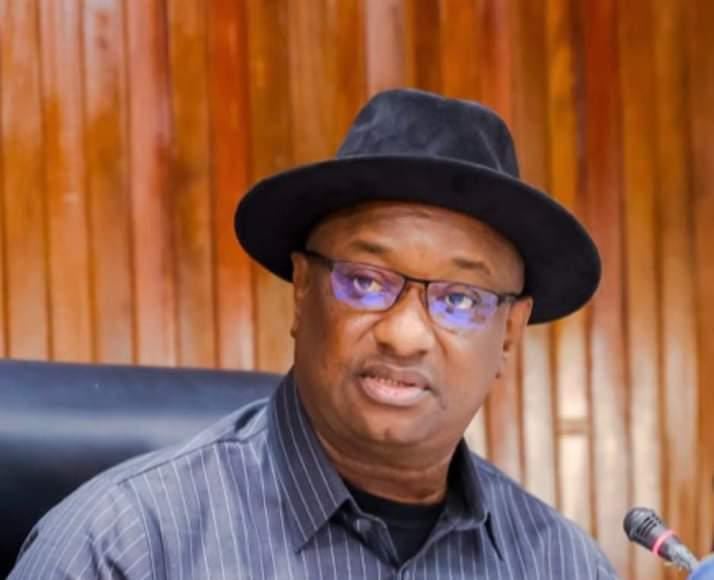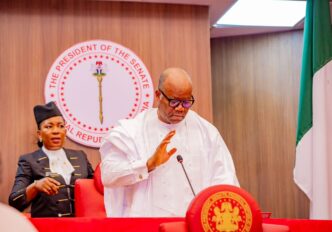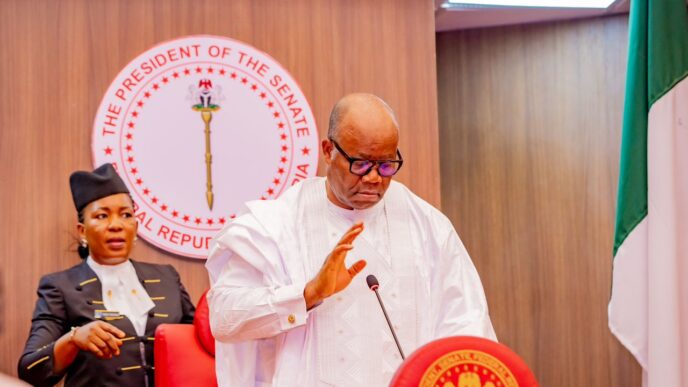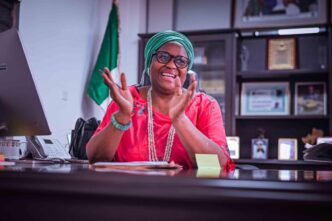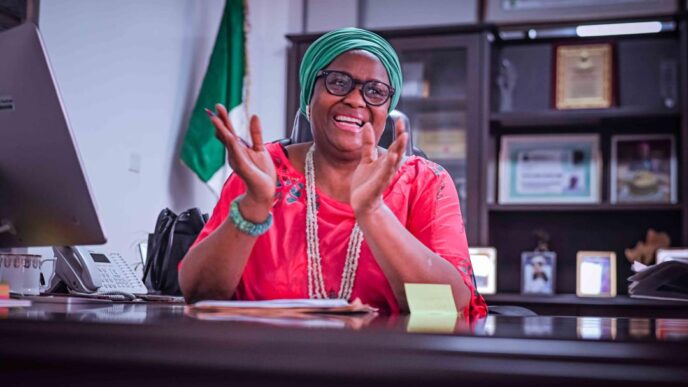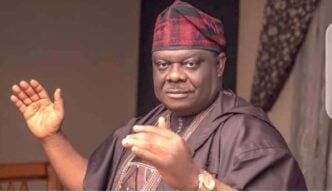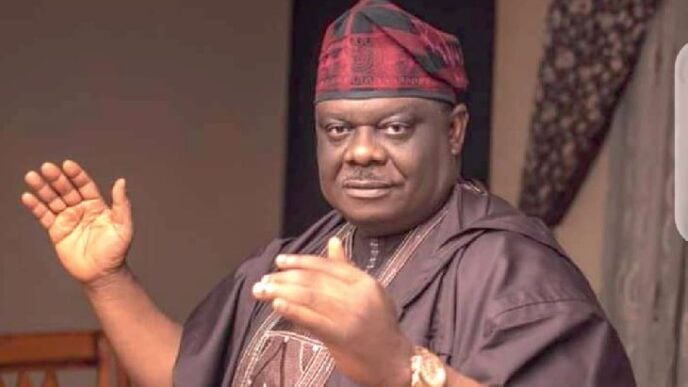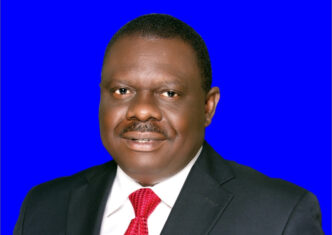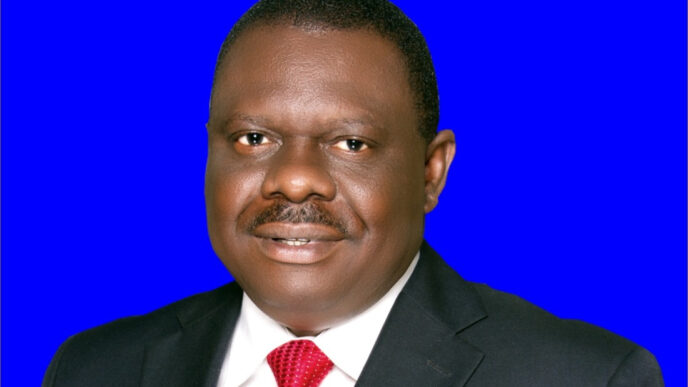Petroleum engineer. Environmental resources manager. Analytical chemist. Public administrator.
The rich resume is what the corporate world would jostle for, but Anthony Ogugua Konwea, 61, has only one job on his mind: to lead his people as the next Asagba of Asaba, Delta state.
Joseph Chike Edozien, a professor of medicine, vacated the revered stool in February 2024 when he joined his ancestors after 33 years of ruling over the affairs of Asaba. With all traditional funeral rites now completed, all eyes are on who will sit on the throne.
Konwea was presented during the week by Olisamedua Uwaechia, the Diokpa Isieke, as the clan’s choice for the throne. Konwea is from the Umuonisha family of the Isieke clan and is in the 15th direct line of descendants of the founder of Asaba, Nnebisi.
Advertisement
According to his official profile, the would-be Asagba studied petroleum production and engineering at the Petroleum Training Institute (PTI), Efurun, Delta state, after which he earned a master’s degree in environmental resources management from the Lagos State University (LASU), a postgraduate diploma in analytical/environmental chemistry from the Lagos State University (LASU) and then a bachelor’s degree in public administration from Ambrose Alli University, Ekpoma, Edo state. Academically, he earned quite a lot of stripes.
But it is his claim to the throne that will matter the most as the Asagba Palace prepares to announce Edozien’s successor.
Asaba started rotating the throne among the five Ebos, each representing the founder’s five sons — Ezenei, Ugbomanta, Agu, Ajaji and Onaje — in 1925. Edozien was from the Ezenei clan (Umuezei) and his successor in the genealogical and rotational order will come from Ugbomanta. Two sons of Ugbomanta are eyeing the throne — Konwea and Epiphany Azinge, a professor of law who once headed the National Institute of Advance Legal Studies as director-general.
Advertisement
But it gets more interesting, as with the game of power and politics in the larger Nigerian society. Even in Ugbomanta, there is further local politics. Konwea is from Isieke while Azinge is from Umudike. However, since Umudike produced an Asagba the last time it was Ugbomanta’s turn, Isieke is now regarded as the natural, logical choice in line with the rotational system.
The Ugbomanta villages are Umudike, Isieke and Ogbe-Osowe. As the elder of two that have not produced an Asagba, Isieke is staking its claim to the throne.
While presenting Konwea to the Asaba people, Uwaechia, the Diokpa Isieke, said: “The rotational kingship stool of Asaba has ensured that the revered stool of the Asagba is relinquished by Umuezei to Ugbomanta after the passing of Professor Chike Edozien. Our unique inheritance of equity and inclusiveness is the yield of Ogbueshi Konwea’s nomination by Isieke as the next Asagba of Asaba.”
Konwea is the Diokpa of his direct family — meaning he is the most senior male without a surviving older brother in the patriarchal system. All the previous 13 Asagbas were Diokpas.
Advertisement
When the rotation started in 1925, Obi Nwokolo from Umuezei had the first go, followed by Obi Ijeh from Umudaike in 1937, moving to Obi Odita from Umuagu in 1950, and then to Obi Nwokolo from Umuaji in 1962. Obi Onyetenu from Umuonaje reigned from 1964 to 1988.
The cycle started all over again in 1991 with Edozien (Umuezei) and will now move to Ugbomanta.
Konwea was nominated following recommendations by the Committee for the Selection of the Next the Asagba, which was set up by the Isieke community in March 2024. Konwea was unanimously adopted from the shortlist by the 25 elders of Umuonisha at a meeting chaired by Uwaechia. The nomination was endorsed at Izu Ogbe convened by Diokpa.
In a promotional document, the Isieke community promised that Konwea will “ensure that the throne of Asagba receives a sociopolitical redefinition and facelift”.
Advertisement
Other promises made are that he will promote and ensure that Asaba cultural heritage “attains a global standard”, ensure that “our socio-cultural heritage can offer meaningful IGR for sustainability”, use his expertise and knowledge in the petroleum sector “to put Asaba amongst the oil and gas producing communities”, and collaborate with the Upstream Monitoring and Regulatory Agency “to exercise an aspect of its regulation to establish an administrative office in Asaba”.
Konwea, it was also said, will “partner with the Delta State House of Assembly to enact a law granting Asaba indigenes the right of catchment area status”, liaise with the state government “to restore the official role of the Omu Ahaba as the administrative head of the markets in Asaba township”, work with Asagba-in-Council “to checkmate and curb youth restiveness”, and preserve the cultural heritage of Ndi Ahaba.
Advertisement
Since he is a man of many parts, his community has every right to expect much from his potential reign.
Advertisement
Add a comment

